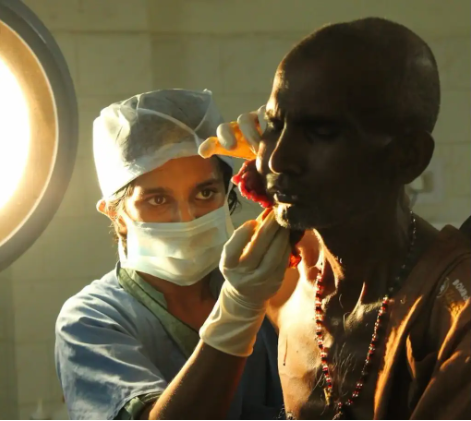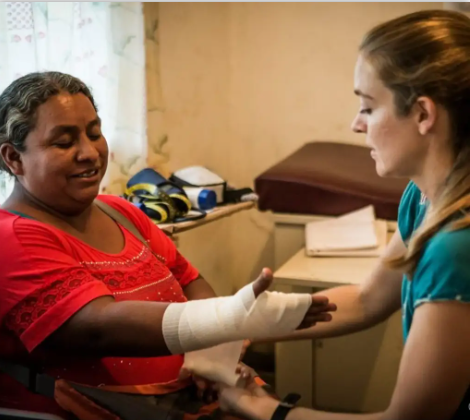Fellowship Overview
Site Fellows and Rotating Fellows learn together and work together in the cohort community, from the first day to the last day of the fellowship. They often partner to deliver projects in the community, at the clinical level, in research, and in teaching. Partnership and solidarity are not just project based, but are deeply embedded into many personal and professional aspects of the fellowship, creating a space for shared knowledge, reflection, and co-creation of solutions and relationships that last well beyond the two year fellowship.

Site Fellows
Site Fellows are health workers who are currently employed by HEAL partner sites. They have spent years embedded in and working in the communities they serve and in most cases and have a deep, demonstrated commitment to to doing this work for the long haul, to their personal growth, and to this global community. They come from a variety of occupations in health, from physicians to nurses to counselors to program managers and beyond.
During the two-year fellowship, HEAL Site fellows attend 3 intensive trainings and commit to funded professional development activities while continuing their work.

Rotating Fellows
Rotating fellows are US based physicians or nurses from a variety of specialties who have completed or will be in the final year of a residency program by the start of their fellowship. To apply to be a rotating fellow, you have to have completed residency in the US, and have a US passport or green card. (Unfortunately this is the case until we have a better immigration policy!)
During the two-year fellowship, HEAL Rotating fellows split their time, rotating between a US underserved site and an international underserved site working full-time and immersively in each location. Rotating fellows are employed as UCSF fellows during that time period, though their day to day work is for two organizations.
Fellow Curriculum & Mentorship
HEAL brings fellows together to deliver three immersive training programs over the two-year fellowship. The HEAL Initiative program is designed to educate and train its fellows in health equity, action, and leadership within the context of global health delivery. HEAL recognizes that much of the learning we do is through immersive experience and is taught not by professors in a classroom, but by our peers, our patients, and our communities. HEAL’s curriculum is designed around four core pillars that hope to strengthen how we do the work of global health equity.

Throughout the two-year fellowship, all HEAL fellows engage in an ongoing curriculum that reinforces and builds upon the skills gained during the Global Health Training through problem-based learning and facilitated discussion. The ongoing curricula emphasizes peer-to-peer learning, self-reflection, and active application of theory into practice.
HEAL believes that the development of a community of practice as well as individual mentorship are key components to transformation. All fellows are coached on identifying and engaging with mentors that fit their unique personal and professional needs. Fellows create individual development plans (IDPs) to provide structured goals and objectives for their two year fellowship experience.
Through active engagement with the curriculum, HEAL’s ever-growing community of practice, and deep commitment to the work in the places we serve, we believe individual and collective transformation is achieved.
“Education either functions as an instrument which is used to facilitate integration of the younger generation into the logic of the present system and bring about conformity or it becomes the practice of freedom, the means by which men and women deal critically and creatively with reality and discover how to participate in the transformation of their world."
Paulo Freire
Pedagogy of the Oppressed
